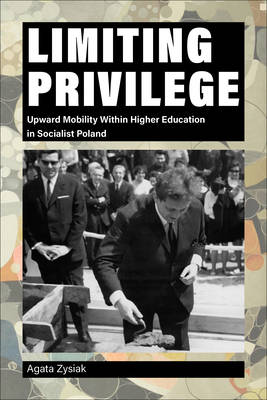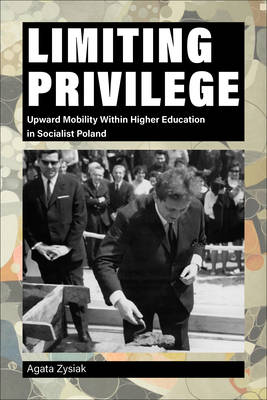
Bedankt voor het vertrouwen het afgelopen jaar! Om jou te bedanken bieden we GRATIS verzending (in België) aan op alles gedurende de hele maand januari.
- Afhalen na 1 uur in een winkel met voorraad
- In januari gratis thuislevering in België
- Ruim aanbod met 7 miljoen producten
Bedankt voor het vertrouwen het afgelopen jaar! Om jou te bedanken bieden we GRATIS verzending (in België) aan op alles gedurende de hele maand januari.
- Afhalen na 1 uur in een winkel met voorraad
- In januari gratis thuislevering in België
- Ruim aanbod met 7 miljoen producten
Zoeken
€ 93,45
+ 186 punten
Uitvoering
Omschrijving
State socialism tried to industrialize, urbanize, encourage the more frequent washing of hands, urge people to leave the church, emancipate women, and electrify cities--all within a single lifetime. Central to these initiatives was extending educational opportunities to the working class and creating a vision of an egalitarian socialist university that offered advancement for all. Limiting Privilege: Upward Mobility Within Higher Education in Socialist Poland traces the possibilities and limits of this goal by looking at a model socialist university established in 1945 in the working-class city of Lódź, Poland. Initially a flagship project of socialist modernization, the university tried to offer social advancement by privileging admission for peasant and working-class children, but these efforts were often fought by the elite who sought to preserve their privilege. By looking at first-generation students, intelligentsia faculty, and an industrial city, Limiting Privilege explores a complex story about utopian visions, failed aspirations, and reluctant academia.
Specificaties
Betrokkenen
- Auteur(s):
- Uitgeverij:
Inhoud
- Aantal bladzijden:
- 276
- Taal:
- Engels
- Reeks:
Eigenschappen
- Productcode (EAN):
- 9781612498829
- Verschijningsdatum:
- 15/12/2023
- Uitvoering:
- Paperback
- Formaat:
- Trade paperback (VS)
- Afmetingen:
- 152 mm x 229 mm
- Gewicht:
- 371 g

Alleen bij Standaard Boekhandel
+ 186 punten op je klantenkaart van Standaard Boekhandel
Beoordelingen
We publiceren alleen reviews die voldoen aan de voorwaarden voor reviews. Bekijk onze voorwaarden voor reviews.









